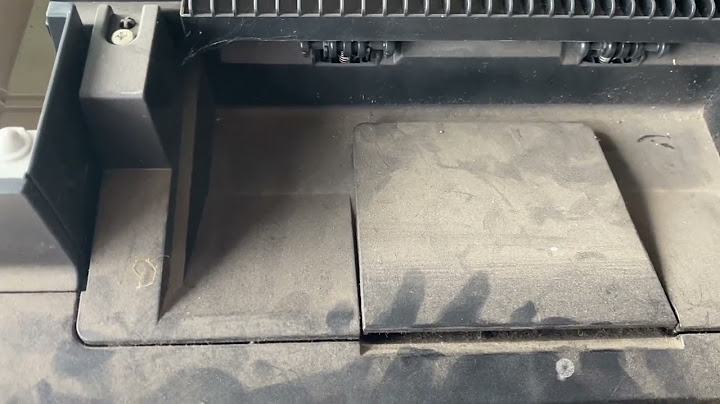We’re living in pretty fuckin’ strange times, eh? The post-truth era is so surreal, with the timeline-filling scroll of madness of the Donald Trumps and Boris Johnsons of the world ensuring that is reality stranger than fiction could possibly be. Satire doesn’t seem equipped to hold anyone to account. No wonder, then, that Green Day, masters of using pop to lampoon, have chosen now to step down from the soapbox and onto the dancefloor. Show They masterfully turned rage and horror into art with the operatic pop-punk opus of 2004’s Bush-bashing ‘American Idiot’. What can you possibly say when nothing really makes any sense? When protest seems futile? The answer? Just fucking party. Or, to put it another way – rave against the dying of the light. Billie Joe Armstrong recently told NME why he avoided political punk this time around: “It was just too obvious… We live in really dangerous times right now. Everything feels sort of unpredictable. America is really fucked-up and it’s hard to draw any inspiration from it because it just depresses me.” At 10 tracks and little over 25 minutes long, there’s no time for any existential angst on the goofily titled ‘Father Of All Motherfuckers’ (not a reference to Mr. Trump, Billie Joe Armstrong assured us). “I’m impressed with the presence of none,” the frontman spits on the titular opener, “hurry up ’cause I’m making a fuss – fingers up ’cause there’s no one to trust”. That’s the record’s M.O. In 2020 Billie Joe Amstrong and co. are rebels without a cause, their 13th album an angry little fucker with its collar popped. ‘Fire, Ready, Aim’ is a blink-and-you’ll-miss-it garage rock belter, before ‘Oh Yeah!’ slows things down with a swagger, shrugging from the street corner at a world where “everybody is a star”, but still “we’re running out of hope”. ‘Stab You In The Heart’ takes Chan Romero’s ‘Hippy Hippy Shake’ and douses it in gasoline, while ‘I Was A Teenage Teenager’ is an anthemic ode to glorious misspent, “full of piss and vinegar”. This is a jukebox record if ever there was one. ‘Sugar Youth’ could have soundtracked many a classic ‘50s diner scene, and there’s a feather-light summer-pop bounce to ‘Meet Me On The Roof’. Green Day still have stadiums in mind, of course. You can see the waving arms and pyro in your mind’s eye when listening to ‘Junkies On A High’, while ‘Graffitia’ is begging to be the first song of the encore. That said, this feels like the most instinctual album that the band have made in 16 years – with the right hallmarks from their past. It’s got the no-fucks hedonism of their side project ‘Foxboro Hot Tubs’, the freewheelin’ All-American ease of his 2018 album with The Longshot, and channelling the rock n’ roll spirit of their sprawling ‘Unos!’ ‘Dos!’ ‘Tre!’ trilogy, but with more focus and all the fat trimmed off. These songs feel like the bratty little brothers of the likes of ‘Castaway’ and ‘Blood, Sex And Booze’ from 2000’s ‘Warning’, but with more of a snarl and a need for speed. That was a record by a band in transition, walking between the line one decade of pop-punk explosion and another of stadium-filling megastardom. Due its acoustic sensibilities and Elvis Costello influence, few understood it at the time. However, its socio-political voice would and hints of classic rock n’ roll would go on to inform the two sides of the band for the coming two decades. Green Day have been bold and brazen and free of pretence. Their intent is laid bare when comparing two of the band’s record sleeves: ‘American Idiot’ was a heart like a hand grenade, ‘Father Of All’ is a unicorn puking a rainbow. Don’t try to make sense of it. Just enjoy. Green Day have been struggling to stay relevant, necessary, and exciting for at least a decade. Granted, even 2004’s American Idiot divided longtime fans, with some people lambasting its commerciality while others—like myself—championed its ambitious conceptual poise. Yet, everything afterward was either a second-rate repeat of that brilliance (21st Century Breakdown and Revolution Radio) or a desperate attempt to reclaim their earlier punk edge while latching onto other been there, done that styles (2012’s triple threat of ¡Uno!, ¡Dos!, and ¡Tré!). None of them were bad, per se, but they also weren’t especially new or compelling, coming across most like slightly reskinned copies of the same schtick. Unsurprisingly, Father of All pretty much suffers an identical fate, with the trio doing their best to appear as vibrant and provocative as ever. Even its cover and full name, Father of All Motherfuckers, seems aimed directly at the far younger Hot Topic crowd. Plus, frontman Billie Joe Armstrong has described the record as being about “the life AND death of the party… [and] the lifestyle of not giving a fuck”. They can play as well as ever, and Armstrong’s trademark voice remains intact, but there’s very little here that comes across as memorable or monumental. Rather, it’s another sequence full of common tropes and techniques (to the point of plagiarism in some cases), and at only 26 minutes in length, it rushes by without leaving much of an impression. There are some catchy tunes here, with the title track kicking off the LP—or would it be EP?—via a characteristically high-energy anthem. In a nutshell, it’s the same sort of chords and rhythms they’ve been doing for ages, but with a tinge of Bowie and Bolan-esque glam rock in the form of falsetto singing, handclaps, and glitzy guitarwork. Its segues seamlessly into ” Fire, Ready, Aim“, whose aesthetic mirrors its predecessor so much that it feels like the second half of the same song. Together, they provide an infectious punch, no doubt, but one that’s entirely disposable, familiar, and ironically mainstream, too. Beyond that, “Meet Me on the Roof” has a tinge of 1950s rock and roll danceability and sleekness that’s somewhat appealing. Regrettably, nearly all of the other tunes offer even more overtly recycled approaches. In particular, ” Oh, Yeah!” shimmers with minimal zeal, choosing instead to center on Green Day’s now-cliché tale of adolescent angst, rebellion, and metaphor. “I got blood on my hands in my pockets / That’s what you get turning bullets into rockets / I am a kid of a bad education / The shooting star of a lowered expectation.” Likewise, the blandly formulaic “I Was a Teenage Teenager” finds Armstrong singing, “My life’s a mess, and school is just for suckers” before the equally run-of-the-mill “Take the Money and Crawl” explodes with sophomoric kiss-offs like “You can take a walk / Or you can suck my cock.” It’s not so much the tone or language that’s the problem; it’s that Green Day have said it all before (and far better), and the fact that they’re still relying on the same juvenile calls-to-action in their late 40s is kind of sad. Arguably the worst offenses come with the outright copying of themselves or others. The artwork of Father of All is the American Idiot cover with some early 2000s emo-punk graffiti, so perhaps it’s not shocking that “Sugar Youth” is eerily close to “She’s a Rebel” (to the point that he sings, “I got a feeling, and it’s dangerous” exactly how he sang “She’s the salt of the earth / And she’s dangerous” back in 2004). Next, “Junkies on a High”—like “Restless Heart Syndrome” from 21st Century Breakdown—is just a modified version of the far superior “Boulevard of Broken Dreams”. As for closer “Graffitia”, it’ll just remind you of its better incarnation, “We Are the Waiting”. Also, “Stab Your in the Heart” doesn’t so much pay homage to Chan Romero’s “Hippy Hippy Shake” (later made famous by the Beatles) as steal it. Again, Green Day retain their performance chops on Father of All, so the issue isn’t that their playing or singing has gotten weaker. They’ve lost none of their enthusiasm or technical skills. What they have lost, though, is virtually any sense of originality, intrigue, or pertinence. It doesn’t appear like they have anything left to say—or any new way to say it—so they rely on sounds and sentiments that became old hat long ago. Sure, many other bands stop forging new territory after going for so long—and kudos to the trio for keeping at it—but rarely has the phrase “you’ve heard this all before” felt so apt. Thus, Father of All may marginally satisfy fans who want more of that central persona, but it’s unlikely that even the most diehard among them will truly celebrate it. Why did Green Day make Father of All?Notes: Recording for the first time with producer Butch Walker, Green Day went into the studio to make an album that traces the history of rock and roll while leaving much of their trademark sound behind. Is Green Day a good band?The group has been nominated for 20 Grammy Awards and won five of them, with Best Alternative Album for Dookie, Best Rock Album for American Idiot and 21st Century Breakdown, Record of the Year for "Boulevard of Broken Dreams", and Best Musical Show Album for American Idiot: The Original Broadway Cast Recording. Who is the main guy in Green Day?Billie Joe Armstrong (born February 17, 1972) is an American musician who is the lead vocalist, guitarist, and primary songwriter of the rock band Green Day, which he co-founded with Mike Dirnt in 1987. Is Green Day an Irish band?Green Day, American rock band that infused the raw power of punk with a melodic pop sensibility and lyrics that captured the angst-ridden restlessness of American teenagers at the end of the 20th century and into the 21st. |




















